Autonomous shipping is making headlines in recent years for its promising potential advantages in the complex maritime environment, including elimination of human error, reduction of crewing costs, more efficient use of space in ship design and efficient use of fuel. A Finnish collaboration, established in 2016, seeks to pave the way for autonomous shipping as early as 2025, validating Nordic countries as the front-runners in the field of automation.
Digitalization is expected to enter all fields of industry in the near future and is presented as a great opportunity for the marine industry to grow through new innovations.
Supporters of automation suggest that artificial intelligence can create added value to the marine industry by automating and optimizing costly features.
A three-year research project by MUNIN (Maritime Unmanned Navigation through Intelligence in Networks) predicted a saving of over $7 million over a 25-year period per autonomous vessel in fuel consumption and crew supplies and salaries.
Amid growing discussion surrounding autonomous ships, in its latest session of MSC in June, IMO approved the framework and encouraged active participation in the existing regulatory scoping exercise (RSE) on the use of Maritime Autonomous Surface Ships (MASS).
In this context, an industry alliance, called One Sea Autonomous Maritime Ecosystem, joined forces in 2016, with a primary aim to lead the way towards an operating autonomous maritime ecosystem by 2025.
Targets
The aim of the high-profile ecosystem is to create a new industrial standard for marine traffic in the Baltic Sea and an environment suitable for autonomous ships by 2025.
The new standards are expected to correspond with the targets of minimizing accidents, decreasing the environmental footprint of marine traffic, and advancing possibilities for new commercial ventures.
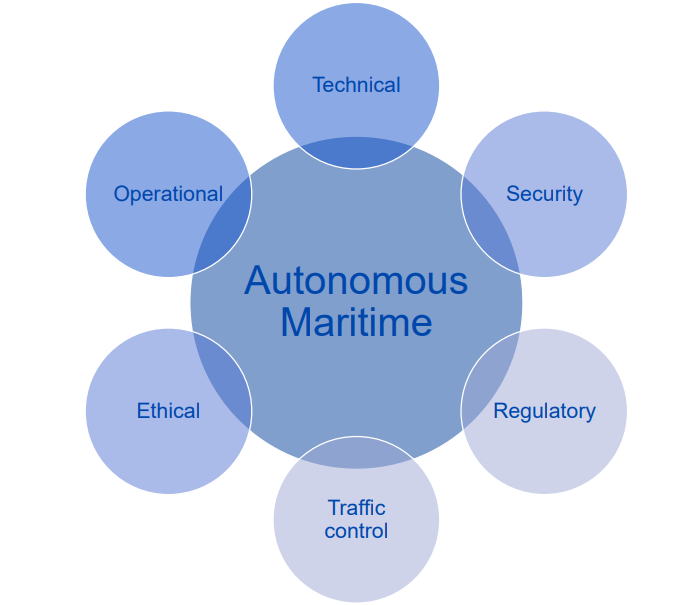
Who are involved?
The Finnish collaboration gathers marine experts from the field of research, information technology and business, including pioneering marine and technology suppliers, shipyards and ship owners.
The ecosystem’s coordinator is DIMECC, a co-creation ecosystem which stands for Digital, Internet, Materials & Engineering Co-Creation. Its network consists of more than 2.000 R&D&I professionals and over 400 organizations.
Partners include technology company ABB, Business Finland, which consists of Finnish firms Finpro and Tekes, cargo handling solutions provider Cargotec, communications technology company Ericsson, Finnpilot Pilotage, satellite communications provider Inmarsat, technology firm Kongsberg, Monohakobi Technology Institute, which is a NYK subsidiary focusing on research, software and services company Tieto, and technology group Wärtsilä.
Roadmap
The One Sea – Autonomous Maritime Ecosystem has introduced roadmaps towards an autonomous maritime future. The Ecosystem Roadmapping seeks:
- to plan and initiate a portfolio of activities that make the vision to become reality
- to involve the best and most relevant global actors, including corporations, SMEs, startups, industry groups, researchers, stardardization bodies, regulators, and public authorities
- to communicate efficiently, raise awareness, and make impact
The roadmaps include a timeline towards 2025 and major themes to be investigated and levels of maritime autonomy.
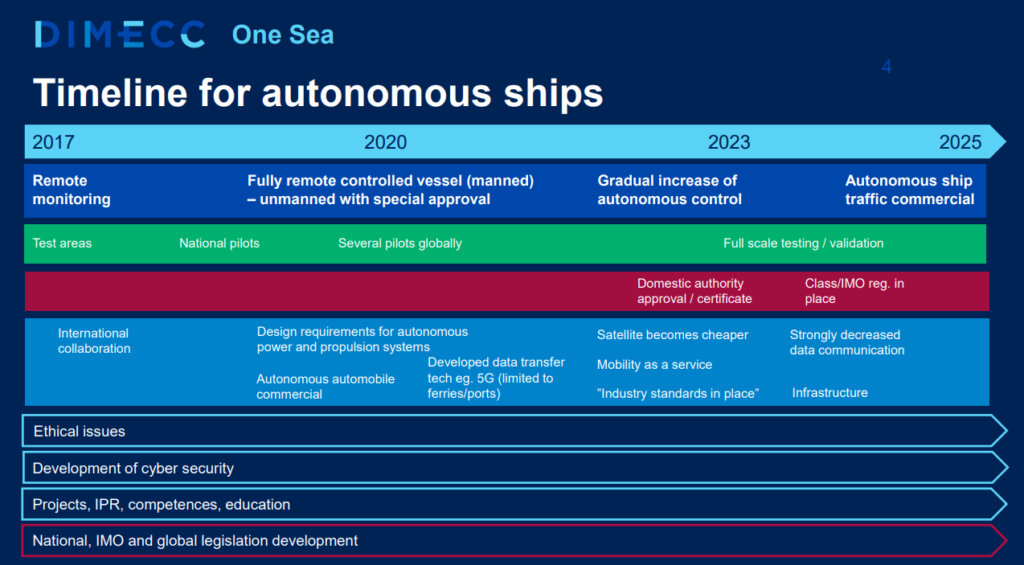
The expected timeline for autonomous maritime traffic shows that the regulators will have to increase the pace at which new regulations are approved. The technologies are advancing at such a speed that the rules and regulations risk becoming obsolete. Fortunately, forward thinking national and international units are doing their best to enable autonomous traffic even within such a short timeline.
In addition, One Sea – Autonomous Maritime Ecosystem is currently working on the roadmaps around themes as Operational, Technical, Security, Regulatory, Traffic Control and Ethical:
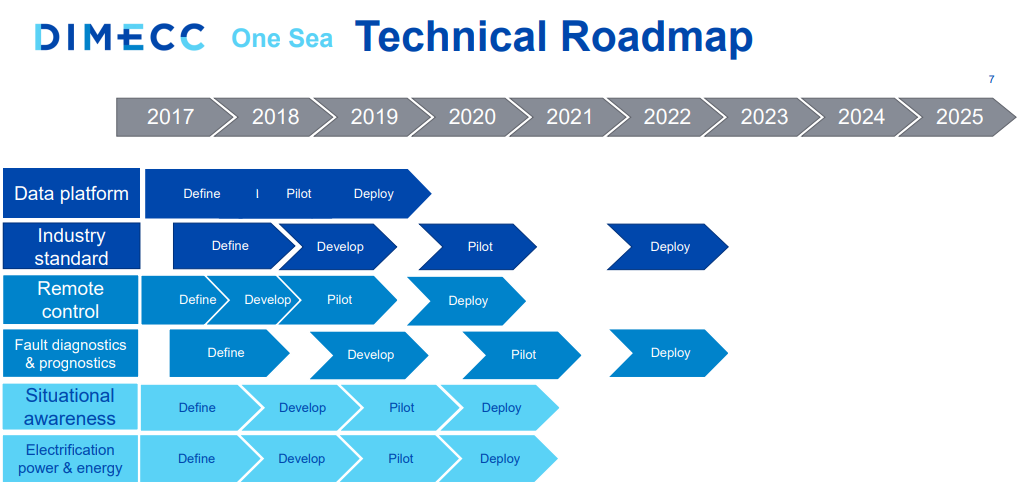

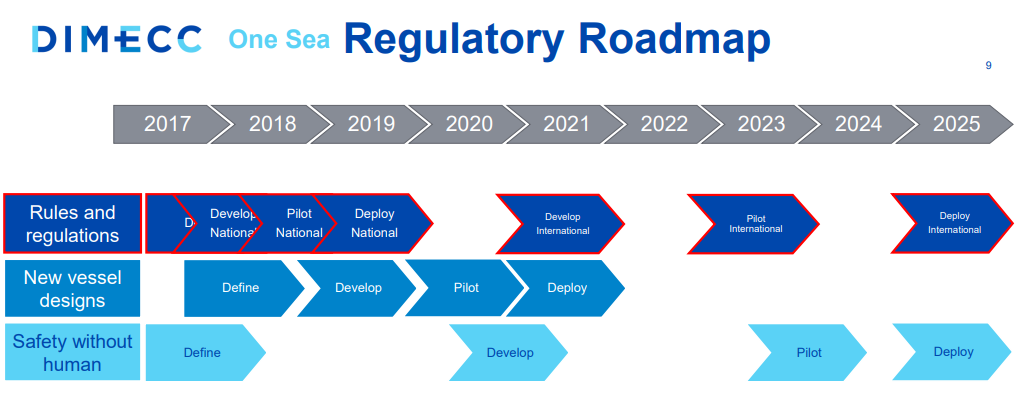
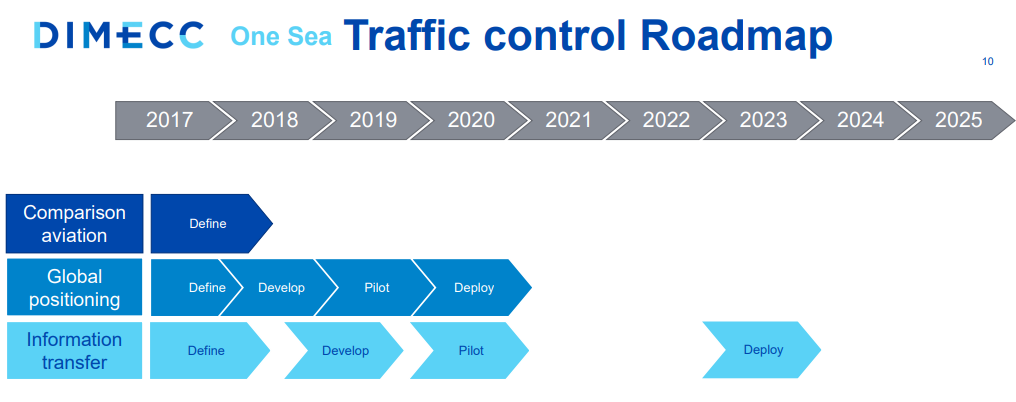
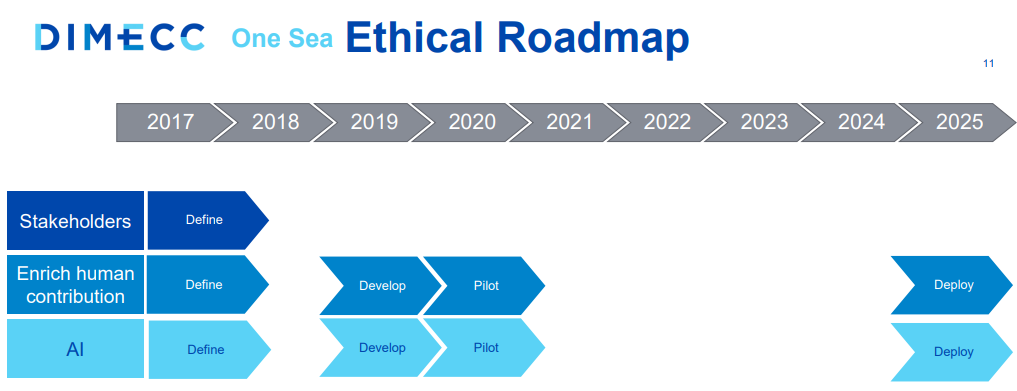
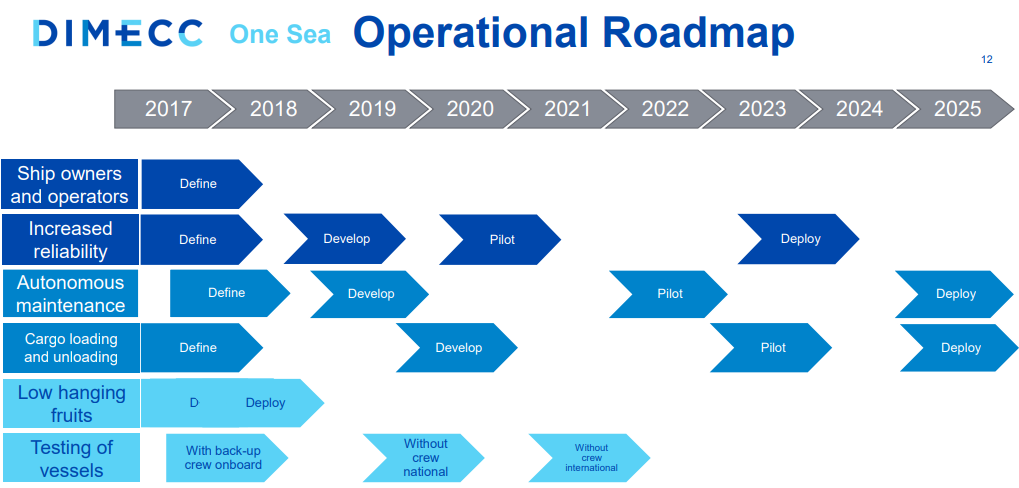
Did you know?
This week, ONE SEA appointed Riku-Pekka Hägg as Chairman of its Management Board. Hägg, who will oversee ONE SEA while retaining his current role as Vice President, Ship Design and Integrated Solutions Sales at Wärtsilä.
It’s exciting to see that smart and autonomous systems are rapidly gaining interest and ground in shipping, but the technology is unregulated, and interoperability is not standardized. ONE SEA is a fantastic collaboration network comprising leading, global and multi-industrial companies who want to co-create proposals for industry standards and regulations in this fast-developing technology area,
…he stated.


































































